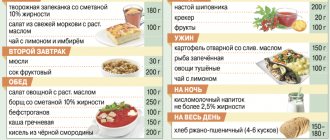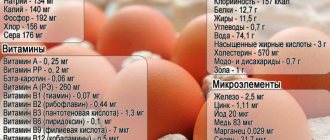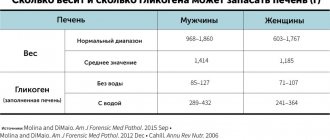An online daily calorie and dietary calculator will help you understand what amount is needed to stay in shape, gain weight or lose weight. Specify your parameters, choose your lifestyle and goal. The system will do the calculation automatically!
Don't have time to count the calories of each dish? Nutrition delivery services are gaining popularity; they prepare delicious and varied food with the right calorie content for the whole day, week and even month and deliver it to your home. Rating of the best (according to customers) deliveries of proper healthy food in Moscow, St. Petersburg, Yekaterinburg, Krasnodar, Kazan, Novosibirsk, Murmansk.
Proteins, fats, carbohydrates are the most important components of our food. When planning a diet for weight loss, it is necessary to accurately calculate the daily calorie intake to meet the body's needs and the ratio of BJU. Properly selected nutrition will allow those losing weight to:
- do not feel hungry, lethargic and weak;
- provide yourself with enough nutrients;
- effectively lose weight and maintain weight at a certain level, which is especially important for women;
- for men - choose a diet to gain muscle mass or lose weight, prepare the body for drying;
- get the correct ratio and balance of nutrients in the body.
What it is?
Macronutrients are substances that are vital for the body, all its systems and organs. These include:
- Proteins or proteins are substances involved in all processes occurring in the body. They act as “building material” for cells, tendons, and tissues. Proteins consist of enzymes responsible for the regulation of metabolism, hormones, antibodies, and hemoglobin. Protein deficiency is dangerous to health and can provoke the development of diseases of the circulatory system, liver, and gastrointestinal tract.
- Fats are part of cell membranes and perform an important protective function, protecting the body from the penetration of pathogenic bacteria and providing thermoregulation. With moderate consumption, fats will not lead to weight gain, and their deficiency, on the contrary, can cause the development of atherosclerosis and cardiovascular diseases.
- Carbohydrates are a fairly broad class, represented by a huge number of foods rich in vitamins, minerals, fiber and plant fibers.
Let's take a closer look at the role of each of the listed macronutrients for weight loss.
Role in weight loss
The diet of a modern person is quite monotonous, and if a new interesting dish appears, it most likely turns out to be harmful and high in calories. This is due to a fast-paced lifestyle in which there is no time to cook or eat a full meal. From such an attitude, the body falls into real panic, mistaking it for danger signals, and begins to store everything for a rainy day with redoubled force. As a result, many systems malfunction, metabolism is disrupted, and symptoms of a lack of vitamins and nutrients appear.
Most people underestimate the importance of a balanced diet. In fact, such nutrition will allow you to lose weight without harm to your health and all its systems, as well as prevent the development of many diseases and pathologies. A proper menu should include the following basic products:
- vegetables;
- fruits;
- nuts;
- cereals and cereals;
- meat;
- fish;
- vegetable oils;
- products made from whole grain wholemeal flour - spaghetti, pasta, bread.
As a rule, short-term diets require the exclusion of most of the listed products - and this is wrong, since the body experiences stress from deprivation, to which it reacts quite aggressively: cardiovascular diseases, problems with the skin, and the gastrointestinal tract appear. Food should be affordable, tasty, healthy, be included in everyday life and be firmly established in it.
Squirrels
Protein plays a huge role in the process of losing weight, various online resources and printed sources talk about this everywhere. Numerous diets are based on it, for example the Dukan diet, which gained popularity at the end of the last century. Why is protein so useful? There are several reasons:
- Participates in the process of formation of cells from which the body is built: muscles, tendons, every organ - all this is protein.
- Improves blood quality and coagulability. The protein hemoglobin, for example, helps transport oxygen through blood vessels to organs.
- Responsible for the synthesis of hormones, regulates the functioning of the thyroid gland and adrenal glands. In addition, proteins are actively involved in the production of enzymes necessary to normalize the functioning of the gastrointestinal tract.
- Stimulates the functioning of the central nervous system: a lack of protein in the diet can cause decreased performance, increased fatigue, and loss of concentration.
- Helps improve liver and kidney function.
- Acts as a source of energy.
- Strengthens the immune system, fights infectious and viral diseases.
Protein can be of plant or animal origin. Both categories are equally important for the health of all systems, so it is important to include them in the daily diet.
Fats
Fat is another vital macronutrient for health and is a combination of glycerol and saturated fatty acids. They are involved in many processes occurring in the body and perform the following functions:
- Protect cells from external influences, penetration of pathogenic bacteria, and damage.
- Responsible for the elasticity of the skin.
- Participate in energy metabolism and provide thermoregulation.
- Help fat-soluble vitamins be fully absorbed. These include VITAMINS A, D, E, K.
- Normalize the production of hormones and enzymes.
Fats are divided into three large groups:
- Mono-saturated, represented by vegetable oils rich in oleic acid and omega-9 fatty acids, beneficial for the body;
- saturated, contained in large quantities in butter, lard, fatty meat, cream, sour cream, cheese, margarine, confectionery;
- poly-saturated, considered the most beneficial for health, as they help normalize blood pressure, cholesterol, and the cardiovascular system. Found in red fatty fish, nuts, avocados, and olives.
It is important to carefully monitor the amount of fat consumed, so that healthy, poly-saturated and mono-saturated types predominate in the diet.
Carbohydrates
Overweight people are usually convinced that carbohydrates are the main enemy for their figure. But you should understand that the main thing is their quantity. In moderate portions, they have a positive effect on the body:
- Helps cleanse the gastrointestinal tract. A large amount of carbohydrates are found in vegetables and fruits, which are also rich in fiber, plant fibers that are not digested by enzymes, but simply pass through the intestines, removing everything unnecessary.
- They are a good source of energy that nourishes cells and brain tissue.
- Increases immunity, protecting the body from the penetration of pathogenic bacteria.
- They participate in metabolic processes and help speed up or slow down certain reactions occurring in the body.
In order for carbohydrates to help the body and improve the functioning of all its systems, it is necessary to strictly monitor their consumption, count the amount and try not to overeat on them.
Sources[edit | edit code]
- Gaine PC, Viesselman CT, Pikovsky MA, Martin WF, Armstrong LE, Pescatello LS, et al. Aerobic exercise training decreases leucine oxidation at rest in healthy adults. J Nutr. 2005;135:1088–92.https://www.ncbi.nlm.nih.gov/pubmed/15867286
- Hartman JW, Moore DR, Phillips SM. Resistance training reduces whole-body protein turnover and improves net protein retention in untrained young males. Appl Physiol Nutr Metab. 2006;31:557–64.https://www.ncbi.nlm.nih.gov/pubmed/17111010
- Thalacker-Mercer AE, Petrella JK, Bamman MM. Does habitual dietary intake influence myufiber hypertrophy in response to resistance training? A cluster analysis. Appl Physiol Nutr Metab. 2009;34:632–9. https://www.ncbi.nlm.nih.gov/pubmed/19767798
- American Dietetic Association, Dietitians of Canada, American College of Sports Medicine. Rodriguez NR, Di Marco NM, Langley S. American College of Sports Medicine position stand. Nutrition and athletic performance. Med Sci Sports Exerc. 2009;41:709–31.https://www.ncbi.nlm.nih.gov/pubmed/19225360
- WHO/FAO/UNU. Protein and amino acids requirements in human nutrition: report of a joint WHO/FAO/UNU expert consultation; Geneva, Switzerland: World Health Organization; 2007. WHO Technical Series, No. 935.
Percentage
Calculating the daily balance as a percentage is quite simple; on the Internet you can find online calculators that, within a couple of seconds, will accurately determine how much KBJU is needed for weight loss or weight gain for a girl or guy, an active man or a housewife. On average, the percentage is as follows:
- The amount of protein in the diet should be approximately 25-35% of the daily value, this value largely depends on the goal, age, level of physical activity, but on average it is 1-2 grams per kilogram of weight.
- Experts from the World Health Organization recommend consuming approximately 30% of your daily fat intake per day. Of these, about 10% should be mono-saturated, and the remaining should be poly-saturated. On average, an adult should consume 60-90 grams.
- The amount of carbohydrates consumed must be closely monitored, with preference given to healthy, slow-burning ones, which include fruits, vegetables, grains and cereals, berries, pasta made from durum wheat. The daily amount should be approximately 30-50% of the daily diet - 3.5-4.5 grams per kilogram of weight.
How much protein, fat and carbohydrates do you need daily?
And it would seem that’s it, now we know how many calories you need to consume daily to achieve the desired result. But to fully control the situation, you need to maintain a balance between BJU (proteins, fats and carbohydrates), which is what our food consists of. After all, a lack of one can lead to disorders in the body. For example, if you don't get enough fat in your daily diet, hormonal imbalance may occur.
You can calculate how much BJU you need taking into account your weight and daily calories (which we calculated above):
2 gr. protein per kg. weight (calorie content of 1 gram of protein is equal to 4 calories)
1 gr. fat per kg. weight (calorie content of 1 gram of fat is equal to 9 calories)
the rest is carbohydrates or 2-4 grams. per kg of weight (calorie content of 1 gram of carbohydrate is equal to 4 calories)
Example: I weigh 48 kg and my daily calorie intake to maintain my weight is 1664.
Proteins = 2 * 48 = 96 g. To find out the possible calorie content 96 * 4 = 384 calories
Fat = 1 * 48 = 48 g, 48 * 9 = 432 calories
To calculate carbohydrates, you need to add proteins and fats and subtract them from your total calories. 1664 - (384 + 432) = 848
Find out how much it is in grams: 848 / 4 = 212 g (for an ordinary person, the minimum carbohydrates are 100 g)
As a result, to maintain weight, my calculation of KBJU per day looks like this:
- 1664 calories
- 96 gr. squirrel
- 48 gr. fat
- 212 gr. carbohydrates
And in order not to turn into a crazy woman who constantly writes down and counts something, install a food diary application on your phone. Such as Fatsecret, Lifesum, DietOnLine, MyFytnesspal and others, they will help you stick to your RBJ in the day. You can add foods to these food diaries yourself, choose from those offered and by barcode. But when you enter your data, the program itself calculates your calorie intake per day, but it is not known what formula was used to calculate the KBZHU, so correct it to your calculations manually. Also, when you choose products that someone else added earlier, recalculate the calorie content of the dish yourself and make your own changes. On the Internet you can find a calorie analyzer for ready-made dishes (for example, on the website calorizator.ru, health-diet.ru) you can calculate the calorie content of a dish by ingredients. This will help you control the eating process, get used to not eating too much, and learn how to determine it “by eye” in the future.
Daily calculation
Calculation of the daily norm of BZHU largely depends on individual characteristics: gender, age, height and weight. A man and a woman, with the same other indicators, need different amounts of kcal, grams of proteins, fats, carbohydrates daily.
First, you need to understand a few basic concepts necessary for the calculation:
- basic metabolism - the number of calories needed by the body to maintain vital functions: body temperature, ensuring the functioning of all systems and organs;
- Daily requirement is the number of calories the body needs to maintain its current weight. This is the basic metabolism and the amount of energy spent on everyday tasks and physical activity;
- Calorie deficit or norm for weight loss is the number of calories the body needs to gradually lose weight without harm to health. This is the value of the basic metabolism and the amount of energy spent on training and daily activities, from which 10-15% must be subtracted;
- surplus or caloric norm required for weight gain - the number of calories the body needs to gradually gain weight without harm to health. This is the value of basic metabolism and the amount of energy spent on training and daily activities, to which you need to add 10-15%.
Knowing this, you can create your own diet and change it depending on your current needs.
Mifflin-San Geor calculation formula
In 1990, an American nutritionist at Mifflin-St. George published data from a study he conducted with his team of highly qualified specialists. It displayed a new formula for determining the body’s daily calorie needs, it looked like this:
- For women: (10 × weight, kilograms) + (6.25 × height, centimeters) − (5 × age, years) - 161.
- For men: (10 × weight, kilograms) + (6.25 × height, centimeters) − (5 × age, years) + 5.
Like the Harris-Benedict formula described below, it takes into account a person's height, weight and age, as well as their gender. The resulting value must also be multiplied by the activity coefficient:
- 1.2 - low physical activity, sedentary lifestyle;
- 1.38 - moderate physical activity, 1-2 workouts weekly;
- 1.6 - average level of physical activity, at least three intense workouts every week;
- 1.73 – high level of physical activity, about five intense workouts weekly;
- 1.9 - intensive training daily, combined with hard physical work.
Harris-Benedict formula
Back in 1919, the American physiologist Francis Gano Benedict, together with the botanist James Arthur Harris, developed the concepts of basic metabolism and derived the first formulas for calculating the average daily norm, which looked like:
- For women: 55.0955 + (9.5634 × weight, kilograms) + (1.8496 × height, centimeters) − (4.6756 x age, years).
- For men: 66.4730 + (13.7516 × weight, kilograms) + (5.0033 × height, centimeters) − (6.7550 × age, years).
The resulting value must be multiplied by the corresponding activity coefficient described above - you will get the number of calories needed daily to maintain your current weight.
Calculation of BZHU
Let's consider an example calculation for a girl weighing 60 kg, height 168 centimeters, age 21 years old, leading a moderate lifestyle:
| Mifflin St. Geor Formula | Harris-Benedict formula | |
| Determination of basal metabolic rate | (10 × 60) + (6.25 × 168) − (5 × 21) − 161 = 1384 kcal | 655.0955 + (9.5634 × 60) + (1.8496 × 168) − (4.6756 × 21) = 1442 kcal |
| Multiplication by the activity coefficient, for this case it is equal to 1.38 | 1384 × 1.38 = 1910 kcal | 1442 × 1.38 = 1990 kcal |
| Norm for weight loss | 1910 kcal − 15% = 1624 kcal | 1990 kcal − 15% = 1692 kcal |
| Protein norm | 35% of diet = (1624 × 0.35)/4 = 142 g | 35% of diet = (1692 × 0.35)/4 = 148 g |
| Fat norm | 15% of diet = (1624 × 0.15)/9 = 30 g | 15% of diet = (1692 × 0.15)/9 = 30 g |
| Carbohydrate norm | 50% of the diet = (1624 × 0.5)/4 = 203 g | 50% of diet = (1692×0.5)/4 = 212 g |
How should BZHU and calories relate?
When creating a menu, you need to pay attention to the table of carbohydrates, proteins and fats, which will clearly show all the indicators of BJU. This is important so that all body functions work properly and do not need any elements. Scientists have concluded that the following parameters will be most optimal: • Proteins: 10-35%. • Fats: 20-35%. • Carbohydrates: 45-65%. If you want to lose weight, then the ratio should look different: • Proteins - 30%. • Fats - 20%. • Carbohydrates – 50%. If the above parameters are not taken into account when losing weight, then the body will “eat” itself, and weight will decrease due to a decrease in muscle mass. Therefore, it is extremely useful to develop a special diet for yourself, taking into account the individual parameters of BJU, which will help you effectively lose weight and not harm your health. A special table of proteins, fats and carbohydrates will help you correctly compose your diet. Rambler reports this. Next: https://woman.rambler.ru/cooking/40829210/?utm_content=rwoman&utm_medium=read_more&utm_source=copylink
Tips for better results
The following simple recommendations will help improve the result of calculating KBJU:
- eat in small portions: often and in small portions, about 5-6 times a day;
- cook with a minimum amount of oil or without it at all, using a grill, double boiler, or non-stick frying pan;
- reduce the consumption of salt, sugar and foods rich in them: smoked meats, confectionery and flour products, canned food, semi-finished products;
- try to look for an alternative to “harmful” dishes, cook on your own, if possible avoid food from the supermarket, since it may contain hidden sugar, various additives, preservatives that are harmful to health;
- Drink a sufficient amount of clean drinking water per day - at least 1.5-2 liters. The norm is 30 ml per kilogram of weight.
Proper nutrition is often not enough for weight loss; other factors are also important, which a weight loss clinic can explain in more detail. Which ones are they talking about, for example? Proper nutrition is just enough to lose weight. But for proper nutrition, it is not enough just to know what and how much to eat. Everyone knows, but few do it. It doesn’t work to force yourself for a long time, and after violence of any duration, the weight comes back. So you just need to get into the habit of eating right. And how to make healthy food a natural desire, a habitual and stress-free daily activity is taught by psychologists, psychotherapists, and weight loss specialists.
Expert opinion
The main and determining factor for losing weight is the psychology of eating behavior. A competent specialist supervises the patient throughout the entire weight loss process and helps him solve the following issues:
- goal setting, search for motivation tools;
- analysis of existing psychological problems: often people eat stress, eat for company or out of boredom - all this is wrong, each of these situations requires searching for a different “solution”;
- establishing relationships with loved ones, friends, colleagues: moral support is extremely important for losing weight;
- tasty food can be a kind of “reward” - for hard work, for a task successfully completed: food should be a way to satisfy the needs of the body, you should not make a cult out of it.
In fact, weight loss is a long process that has a large number of pitfalls and hidden difficulties. Only 5% of people are able to lose weight on their own, without any help. For everyone else, it’s better to immediately seek help from weight loss specialists, rather than test your body’s strength.











